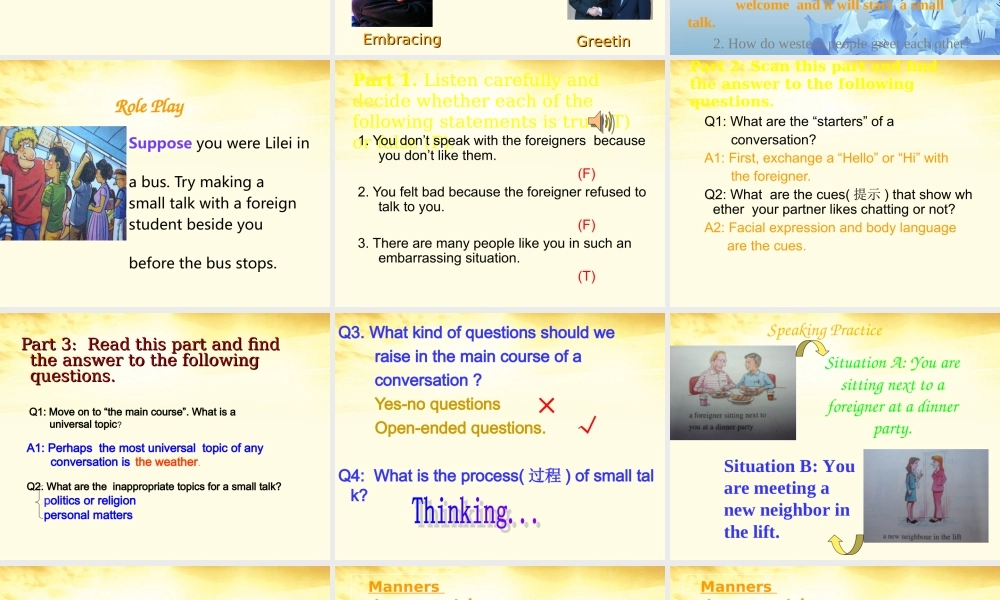Module Two CULTUREUnit 3MannersManners (pl.) 1. polite ways of behaving in social situations 礼貌 ; e.g. :good manners 有礼貌 bad manners 没礼貌 2. habits and customs 礼仪 e.g. :Western food manners 西餐礼仪 RevisionRevisionTell Tell Good Manners Good Manners or or Bad MannersBad Manners according to according to English manners:English manners:1. Speaking with your mouth full of 1. Speaking with your mouth full of food.food.2. Asking questions such as “How 2. Asking questions such as “How much do you weigh?” or “Why much do you weigh?” or “Why aren’t you married?”aren’t you married?”3. Queue jumping3. Queue jumping .4. Saying “Excuse me”, “Please” and 4. Saying “Excuse me”, “Please” and “Thank you”“Thank you”5. Arriving late to a conference5. Arriving late to a conferenceBadBadBadBadBadBadGoodGoodBadBadBadBad6. Picking your nose in public6. Picking your nose in public7. Driving on the left side of the road7. Driving on the left side of the road8. Talking loudly in public 8. Talking loudly in public 9. Staring at someone in public9. Staring at someone in public10. When yawning or coughing, 10. When yawning or coughing, always covering your mouth with always covering your mouth with your hand.your hand.BadBadBadBadGoodGoodGoodGood Shaking Shaking handshandsKissingKissingEmbracingEmbracingGreetinGreetinggMannersManners in China Shaking handsShaking hands Greetings: Greetings: “ “Hello!”, “How are you doing”;Hello!”, “How are you doing”; “ “Have you had your dinner?”;Have you had your dinner?”; “ “Where are you going?”; orWhere are you going?”; or “ “Where have you been?”, Where have you been?”, ShakingShaking handshandsKissingKissingEmbracingEmbracingGreetinGreetinggManners Shaking...




